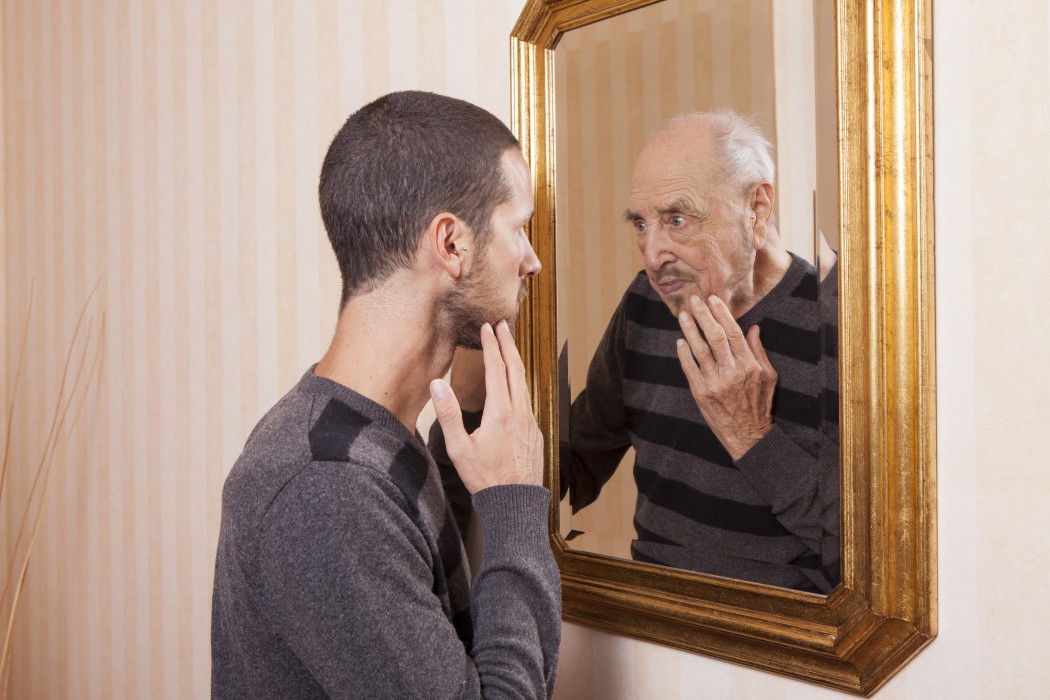They say “age is just a number,” but as you grow older, it’s hard not to feel like you’re in a race against the clock. When you spend your whole life working, you’re bound to have a lot left on that bucket list when it finally comes time to retire. But stressing about when you’re going to cram it all in—or if you ever will—won’t help. In fact, it’s about the worst thing you can do. According to the Mayo Clinic, persistent worrying can deteriorate your health in a variety of ways. If you’re having trouble coping with the stress of aging, there are a few things you can do to put your mind at ease. They might not help you beat the clock, but they will stop you from worrying about it so much.
Scare yourself
No matter what age you are, never stop trying new things. That doesn’t mean you have to go skydiving next Tuesday—it might be as simple as trying that new Ethiopian restaurant that opened up, or even getting your first dog. Research has shown that new experiences activate the brain’s reward system, flooding it with feel-good chemicals like dopamine. Plus, if you’re thinking about what you’re going to eat on the menu or how you’re going to take Fido on your next trip abroad, you won’t have time to stress about aging.
Do what you love
“Do what you love” is a mantra we hear over and over in modern society, but it’s still a relatively new concept. For previous generations, jobs were more about pay cheques than passion, and often for good reason. But now that you’re done supporting your family, it’s time to indulge in that hobby you could never make a living from. Whether it’s woodworking or photography, everyone has something they’ve been yearning to dedicate more time to, and a recent study found that hobbies like these can relieve stress and lower blood pressure almost immediately.
Surrounded by the people you love
Because our society puts such an emphasis on hard work, wealth, and success, socializing might not always make the top of your to-do list. But it’s time to change that. Research continues to indicate that strong social ties are one of the biggest predictors of health, happiness, and longevity. So no matter what you do, make spending time with others a big priority. Not only is it good for your health, but we’ll bet that when you look back on your life, you’ll have far fewer regrets.
Be proactive
Getting enough exercise and sleep is as good for the mind as it is for the body. Numerous studies have found an improvement in people’s anxiety symptoms when their physical activity increased, especially when it was “mindful movement” like yoga or tai chi. The same goes for getting enough shut-eye. If you’ve ever had trouble sleeping, you probably know how irritable it can make you the next day. That’s because sleep deprivation can amplify the regions of your brain tied to emotional processing, which can contribute to chronic worry and, subsequently, anxiety.
Be prepared
It’s easy to think that estate planning is morbid and just dismiss the topic altogether. But avoiding a situation is never a healthy way to deal with it, and the last time we checked, nobody lives forever. If you die without a will, you’ll have no control over how your belongings are distributed or how well your loved ones are taken care of. If you don’t have any blood relatives or a spouse, all of your assets will go to the provincial government—even if you would prefer they went to a long-time companion, lover, close friend, or favourite charity. So make an appointment with an estate lawyer and start planning. With this in order, you’re bound to feel some weight lifted off your shoulders.
Also on RNR:

























